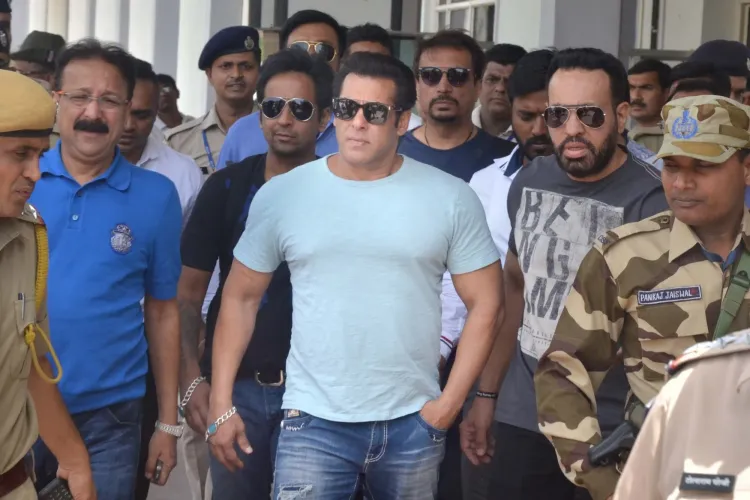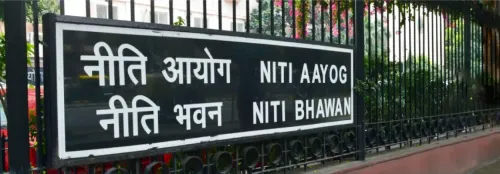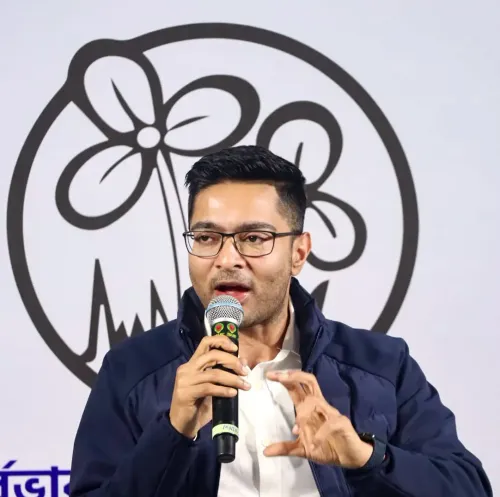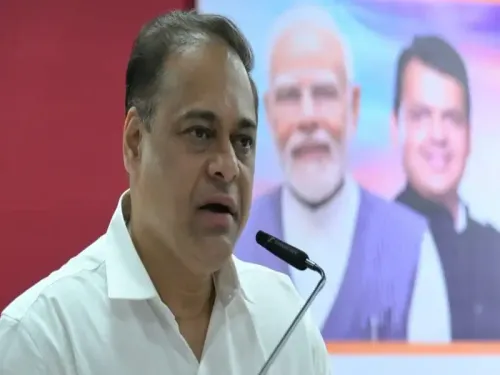What’s Happening in Salman Khan's Blackbuck Poaching Case?

Synopsis
Key Takeaways
- Salman Khan challenges his conviction in the blackbuck poaching case.
- State government seeks to appeal acquittals of co-accused actors.
- The case highlights the ongoing conflict between celebrity culture and wildlife conservation.
- The Bishnoi community's advocacy emphasizes the importance of protecting endangered species.
- Legal complexities surrounding 'leave to appeal' in acquittal cases.
Jaipur, Sep 23 (NationPress) The extensive blackbuck poaching case, which has unfolded over the last twenty years, was in the spotlight once again on Tuesday as the Rajasthan High Court reviewed two significant petitions—one from Bollywood star Salman Khan, contesting his conviction, and another from the state government seeking approval to challenge the acquittal of the co-accused.
The session occurred in Justice Sandeep Shah's courtroom but was postponed after a request from the public prosecutor for additional time. The next hearing is set for eight weeks from now.
This case originated in October 1998 while filming the Bollywood movie 'Hum Saath Saath Hain' close to Kankani village in Jodhpur. Salman Khan faced accusations of illegally hunting a blackbuck, a species protected under the Wildlife Protection Act. The legal proceedings commenced following a complaint from the Bishnoi community, which reveres the blackbuck and has significantly contributed to the pursuit of justice. On April 5, 2018, the Chief Judicial Magistrate (CJM) court in Jodhpur ruled Salman Khan guilty under the Wildlife Protection Act, sentencing him to five years in prison along with a fine of Rs 25,000.
Conversely, five other co-accused—Saif Ali Khan, Tabu, Sonali Bendre, Neelam, and Dushyant Singh—were acquitted due to insufficient evidence. Over the years, all actors have been questioned multiple times as the case navigated through various judicial avenues. This hearing revolved around two main petitions: Salman Khan's appeal disputing his conviction and aiming for acquittal, alongside the state government’s Leave to Appeal, which requests permission to contest the acquittals of the other co-accused.
As the “leave to appeal” is not automatically granted for acquittals, the state government must seek the court’s consent before any appeal can proceed.
“The government is convinced that the acquittals were not justified and is urging the High Court to revisit the evidence,” stated a legal source familiar with the developments.
Both petitions were examined together for judicial expediency, but additional arguments will now be conducted following the court's eight-week adjournment.
This year, the initial hearing occurred on February 14. Due to the case's complexities, the court set the subsequent hearing for April 15. The second hearing on May 16 led to scheduling the case for July 28, alongside Salman Khan's appeal. The third hearing was held on July 28, where it was ordered that Salman Khan's appeal against his conviction be registered in the High Court and listed for hearing on September 22.
The matter will reconvene later this year unless additional delays arise.
In the wake of the 1998 incident, the Bishnoi community—renowned for its strong conservation ethos—not only pursued the case diligently but also called for a memorial at the site of the blackbuck's death. This memorial now stands as a testament to the community's profound commitment to wildlife conservation.
Legally, “leave to appeal” signifies seeking special permission to file an appeal, particularly in acquittal cases. This is crucial since the right to appeal is not automatic for the prosecution. The High Court must be persuaded that there are valid legal grounds to revisit the lower court's decision. If the court grants leave, the case transitions into a standard appeal, allowing for comprehensive arguments on the case's merits to be presented.










